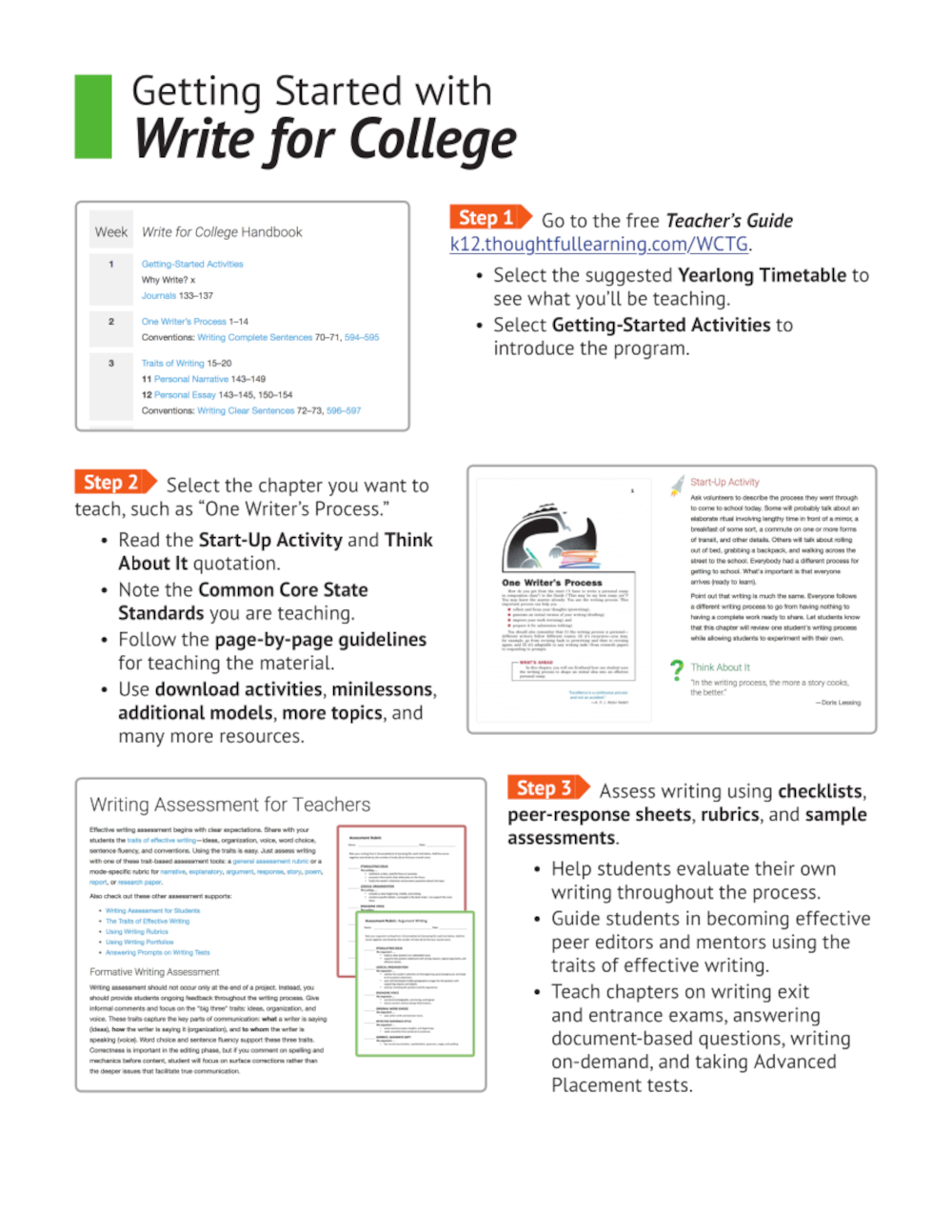How is Write for College organized?
The Write for College Handbook has five main sections, as you can see on the back cover.

- The Process of Writing section teaches strategies for prewriting, drafting, revising, editing, and publishing. This section also covers the basics of sentences, paragraphs, and essays.
- The Forms of Writing section teaches how to write the many forms: personal, narrative, explanatory, persuasive, literary, research, and creative. Chapters provide guidelines, models, and checklists.
- The Tools of Learning section teaches skills for reading, listening, speaking, studying, and test taking.
- The Proofreader's Guide provides rules and examples for punctuation, mechanics, spelling, usage, sentences, and grammar.
- The Student Almanac includes exciting pages on language, science, math, history, geography, and government—perfect for writing across the curriculum.
Take a Tour!
Page through the handbook in one of these ways:
What's in the free online Teacher's Guide?
The Write for College Teacher's Guide includes a scope and sequence, yearlong timetable, getting-started activities, chapter-by-chapter guide to the handbook, help for writing assessment, research basis, and activities and handouts.

You can get to the Teacher's Guide by going to k12.thoughtfullearning.com and clicking on "Teacher's Guides" in the top banner.

Take a Tour!
Page through the free online Teacher's Guide on any device with Internet access—no sign-in needed.
How can I teach with Write for College?
The Write for College Handbook is designed to let you choose what you want to teach and when. Instead of marching page by page through a basal, you select the chapters you teach throughout the school year.
Here's one sample way that you might organize the first three weeks of instruction in your classroom, drawn from the "Yearlong Timetable" in the Teacher's Guide:

Here's one suggested teaching plan:
- Week 1: Download "Getting-Started Activities" and distribute them to your students. They can complete the activities in Word or Google Docs, or they can work on paper printouts. These fun scavenger hunts and other activities help students become familiar with their handbooks. You can also teach "Why Write?" and get students started with "Journals."
- Week 2: Then you can teach the chapter "One Writer's Process" to help students learn the basics of good writing. You can also teach "Writing Complete Sentences" in the handbook.
- Week 3: Next you can teach "Traits of Writing" and then have students begin writing narrative forms. Eleventh graders might write "Personal Narratives," while twelfth graders could work on "Personal Essays." Each grade can continue to learn about "Writing Clear Sentences."
How can I get started with these materials?
Download the Write for College Program Sheet. The first page provides an overview of what you have just learned about the three components. The second page gives you a simple four-step process for launching the program in your classroom—getting you and your students comfortable with Write for College.

